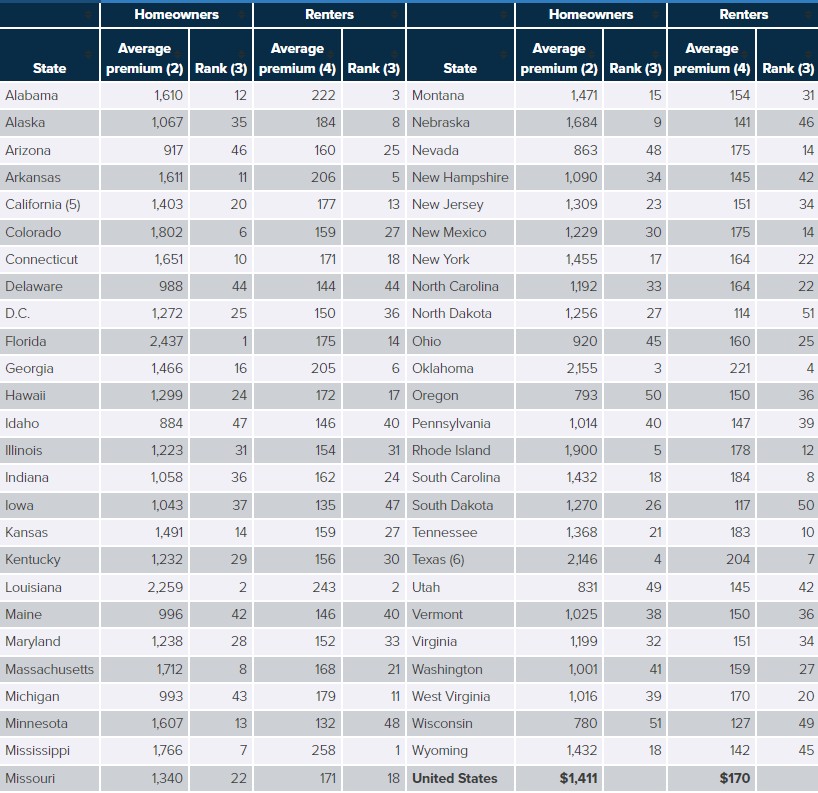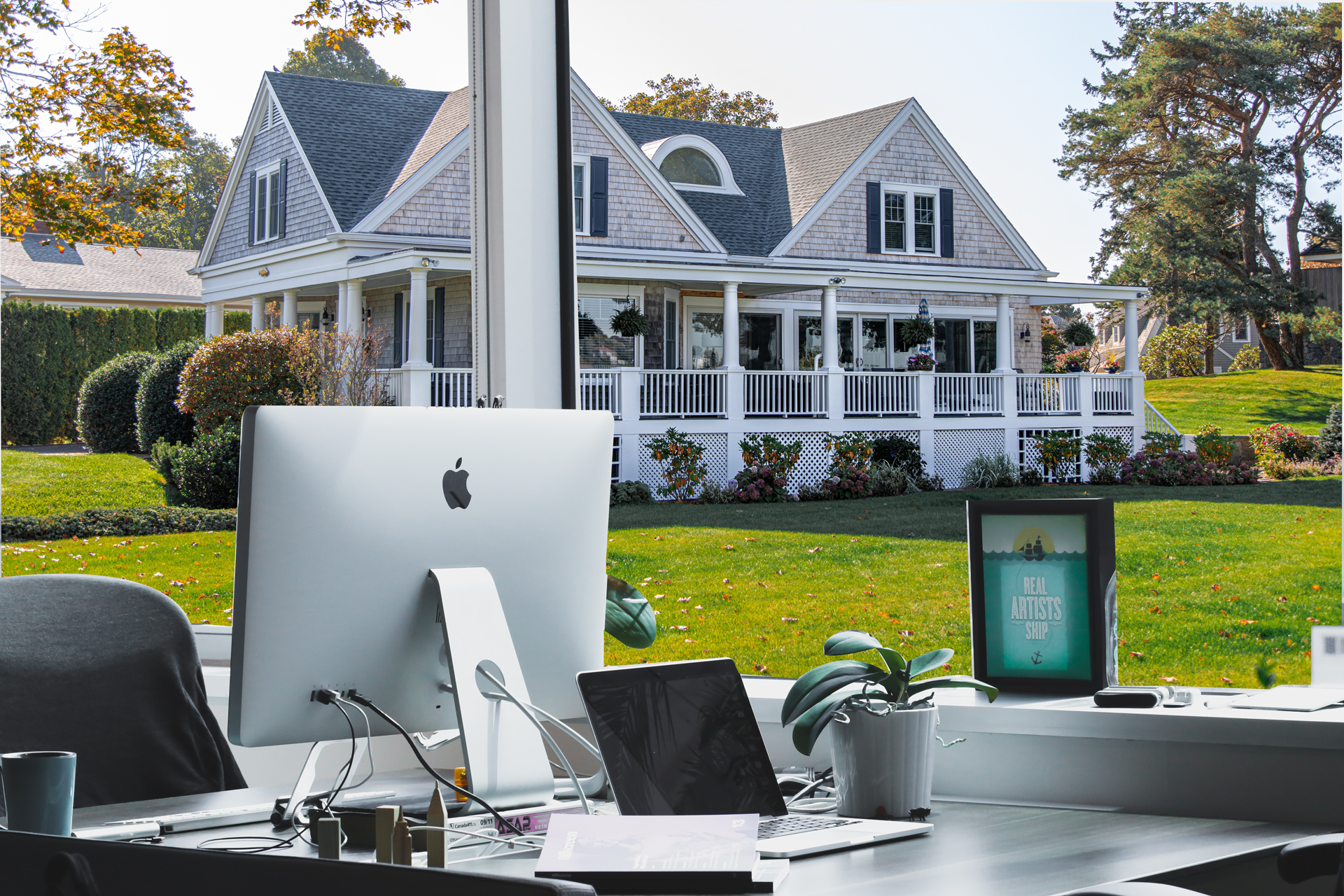
For many years Phoenix has been one of the fastest growing metro areas in the country and has experienced a booming housing market. Phoenix homeowners insurance rates average $1,790 per year or $149 per month. Rates are a bit higher in Phoenix than other cities because the home values are higher and the city is more prone to natural disasters.
It’s essential to have adequate Phoenix homeowners insurance that not only protects against risks but also provides comprehensive coverage tailored to your needs and budget. This article will explore the different types of home insurance available in Phoenix, the factors that influence premiums, and how to choose the best policy for your home.
Understanding Homeowners Insurance In Phoenix
Home insurance is a policy that protects your property against damages and losses caused by unexpected events like fire, theft, or weather-related incidents. A standard home insurance policy typically includes coverage for the following:
- Dwelling Coverage: Protects the physical structure of your home, including walls, roof, and foundation.
- Personal Property Coverage: Covers the contents of your home, such as furniture, electronics, and clothing.
- Liability Coverage: Protects you if someone is injured on your property and sues you for damages.
- Additional Living Expenses: Covers costs if your home is uninhabitable due to a covered loss, such as temporary housing and meals.
Phoenix residents should ensure that their home insurance policy addresses risks unique to the area, such as extreme weather and natural disasters.
Types of Home Insurance in Phoenix
When selecting home insurance in Phoenix, homeowners can choose from various policy types. Understanding these different types is essential to making an informed decision.
- HO-1 Basic Coverage The most basic form of home insurance, the HO-1 policy provides minimal coverage for the home, personal belongings, and liability. This type of policy is not commonly available in Phoenix, as it does not cover many risks relevant to the area, such as flood damage or natural disasters.
- HO-2 Broad Coverage Also known as “Named Peril” coverage, the HO-2 policy provides broader coverage than HO-1, protecting against damages from a wider range of causes. It includes damage from fire, theft, hail, and vandalism. However, it does not cover all types of perils.
- HO-3 Special Coverage The most common and comprehensive type of home insurance, HO-3 offers broad protection for the structure of your home and personal property. It covers all risks unless they are specifically excluded. For example, damage from earthquakes or floods may not be included but can be added through separate policies.
- HO-4 Renters Insurance If you’re renting an apartment or house in Phoenix, an HO-4 policy can cover personal belongings and liability. While the property owner will have insurance for the structure, renters need separate insurance to protect their possessions and cover liability for accidents that occur inside the rental.
- HO-5 Comprehensive Coverage Offering the highest level of protection, HO-5 policies cover the structure and personal belongings against all risks except those explicitly excluded. This type of policy is often recommended for homeowners with high-value items or live in areas prone to significant risks.
Risk Factors In Phoenix and How Home Insurance Can Help
Phoenix faces several unique risks that homeowners should consider when purchasing home insurance. The following are some of the most common hazards:
- Wildfires Phoenix is located in a region vulnerable to wildfires, especially in the hotter months. A wildfire can spread quickly, destroying homes and personal property. While standard home insurance often covers fire damage, ensuring that your policy includes sufficient coverage for wildfire-related losses is crucial. Some insurance companies may offer special riders or exclusions for wildfire coverage.
- Monsoon Storms and Hail Arizona is known for its monsoon season, typically between June and September. These storms bring heavy rains, strong winds, and hail, which can cause significant damage to roofs, windows, and the exterior of homes. Homeowners in Phoenix should ensure their policies cover wind and hail damage, as these events can be highly destructive.
- Flooding While Phoenix is not known for regular flooding, heavy rainfall from monsoon storms can cause localized flooding, especially in low-lying areas. Standard home insurance policies typically do not cover flood damage. Homeowners should consider purchasing a separate flood insurance policy through the National Flood Insurance Program (NFIP) or a private insurer.
- Extreme Heat Phoenix experiences extreme heat, particularly during summer, with temperatures often exceeding 100°F. Heat-related damage can affect your home’s structure and systems, such as HVAC units and roofing. Homeowners may want to ensure that their policy covers any damages related to heat, such as roof collapse due to excessive heat.
- Earthquakes Arizona is not a high-risk earthquake zone, but the state has experienced minor tremors in the past. Homeowners who are concerned about earthquakes should consider purchasing additional earthquake coverage, which can be added to most home insurance policies as a rider.

Factors That Influence Home Insurance Premiums in Phoenix
Several factors affect the cost of home insurance in Phoenix. Understanding these factors can help you make an informed decision when shopping for a policy.
- Location The location of your home plays a significant role in determining premiums. Homes situated in areas prone to wildfires or flood zones may have higher premiums due to the increased risk of damage. Additionally, proximity to emergency services like fire stations and hospitals can lower premiums.
- Home Value and Age Older homes may be more expensive to insure due to the higher risk of damage and the cost of repairs. The value of your home, including the replacement cost, will also influence premiums. Newer homes often have lower premiums because they are built to modern safety standards.
- Deductible The deductible is the amount you must pay out of pocket before your insurance policy kicks in. A higher deductible typically results in lower premiums, while a lower deductible can raise the cost of your policy.
- Coverage Limits The more comprehensive the coverage, the higher your premium will be. If you opt for additional coverage for valuables or high-risk events like floods, your premium will increase accordingly.
- Claims History Your past claims history can influence your premiums. If you’ve filed multiple claims in the past, insurers may view you as a higher risk and raise your premiums.
- Credit Score Many insurance companies use your credit score to determine your premium rates. Homeowners with higher credit scores are often offered lower premiums because they are seen as less likely to file claims.
Smart Tips for Saving More on Home Insurance in Phoenix
While home insurance is essential, there are several ways to reduce your premiums without sacrificing coverage. Here are a few strategies:
- Bundle Your Insurance Many insurers offer discounts for bundling multiple policies, such as home and auto insurance. Bundling can lead to significant savings on your premiums.
- Increase Your Deductible Raising your deductible can lower your premium. However, make sure you can afford the higher deductible if you need to file a claim.
- Install Security Systems Installing home security systems, such as alarms, cameras, and smart locks, can reduce the risk of theft and break-ins, leading to lower premiums.
- Maintain Your Home Regular maintenance, such as cleaning gutters, trimming trees, and repairing leaks, can reduce the risk of damage from storms or other natural disasters. Insurers may offer discounts for well-maintained homes.
- Shop Around It’s always a good idea to compare quotes from different insurance companies. Rates can vary widely, and by shopping around, you may find better coverage at a lower price.
- Ask About Discounts Many insurance providers offer discounts for things like being a senior, being a long-time customer, or making your home more energy-efficient. Be sure to ask about any discounts you may be eligible for.


